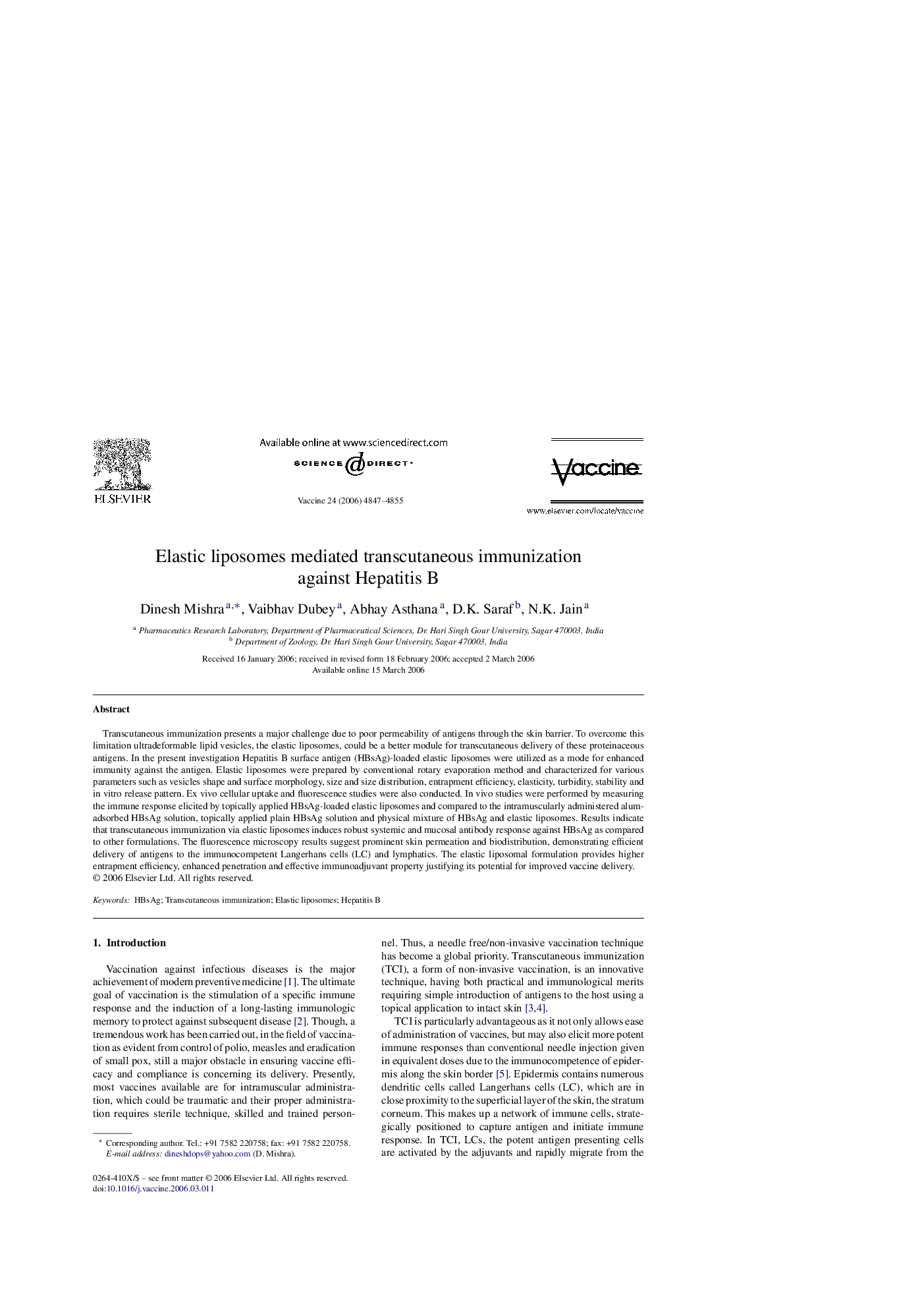| Article ID | Journal | Published Year | Pages | File Type |
|---|---|---|---|---|
| 2410109 | Vaccine | 2006 | 9 Pages |
Transcutaneous immunization presents a major challenge due to poor permeability of antigens through the skin barrier. To overcome this limitation ultradeformable lipid vesicles, the elastic liposomes, could be a better module for transcutaneous delivery of these proteinaceous antigens. In the present investigation Hepatitis B surface antigen (HBsAg)-loaded elastic liposomes were utilized as a mode for enhanced immunity against the antigen. Elastic liposomes were prepared by conventional rotary evaporation method and characterized for various parameters such as vesicles shape and surface morphology, size and size distribution, entrapment efficiency, elasticity, turbidity, stability and in vitro release pattern. Ex vivo cellular uptake and fluorescence studies were also conducted. In vivo studies were performed by measuring the immune response elicited by topically applied HBsAg-loaded elastic liposomes and compared to the intramuscularly administered alum-adsorbed HBsAg solution, topically applied plain HBsAg solution and physical mixture of HBsAg and elastic liposomes. Results indicate that transcutaneous immunization via elastic liposomes induces robust systemic and mucosal antibody response against HBsAg as compared to other formulations. The fluorescence microscopy results suggest prominent skin permeation and biodistribution, demonstrating efficient delivery of antigens to the immunocompetent Langerhans cells (LC) and lymphatics. The elastic liposomal formulation provides higher entrapment efficiency, enhanced penetration and effective immunoadjuvant property justifying its potential for improved vaccine delivery.
